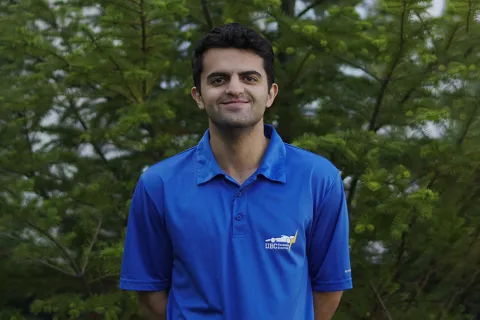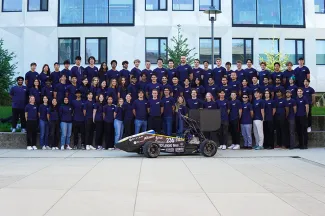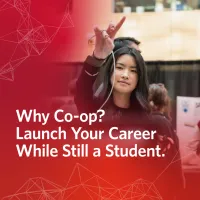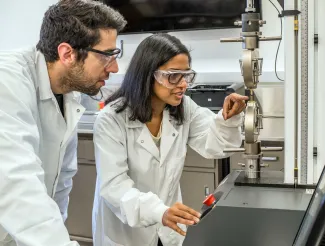"I’m grateful to have these different experiences, and it goes back again to the adaptability that manufacturing engineering provides."

Arman Hariri
- Degree:
- Bachelor of Applied Science
- Program:
- Campus: Vancouver
- Year: 3rd year as of September 2023
Why did you want to study engineering?
Growing up, I was always curious about how things work – like taking toys apart to see how the parts fit together. My interests always seemed to involve understanding the science behind the things around me, so towards the end of high school, engineering seemed like a clear choice.
Engineering also offered a way to look at the big problems around us and come up with ways to reinvent solutions that could make the world a bit better, one step at a time.

How did you choose Manufacturing Engineering?
I didn’t even know about the manufacturing engineering program coming into UBC, as it’s one of the newest programs. I learned about it midway through first year, and it had the perfect mix of topics I was interested in, from mechanical engineering concepts to materials engineering, process design and a little bit of electrical and computer engineering as well.
The program takes a holistic approach towards manufacturing and design, where you learn every step of bringing a product to life, including the initial mechanical design, material selection and large-scale manufacturing processes.
There are also a lot of industrial engineering concepts about automating processes, optimizing production and understanding the management and finance side of things. You’re basically learning adaptability, and how to combine all of these things into a holistic process.
Tell us about your involvement with UBC Formula Electric.
I’m part of the UBC Formula Electric team that is designing a high-performance fully electric race car roughly the size of a go-kart. We had one of our most successful competitions last year, competing in the US against over 60 universities.
Our team is completely student run, and we build the car from scratch – from drafting all the components and welding the chassis to building a custom electrical system.
With engineering it’s easy to just think about the pure science and theories, but actually doing all of these hands-on things and seeing the final car go over 100 km/h in front of your eyes is very rewarding.

Why did you decide to get involved in the Manufacturing Engineering Undergraduate Club?
I decided to run for the position of President of the Manufacturing Engineering Undergraduate Club to help build a positive student community by working with the department and other student groups in various academic and social initiatives. I saw it as a chance to step out of my comfort zone, and it’s been a lot of fun meeting new people and trying something new!
Manufacturing Engineering Undergraduate Club
Do you have any thoughts on the type of impact you’d like to make in your career?
I would love to work on a team that’s on the forefront of innovation in design, technology and production, as those leading-edge advancements can be scaled to drive development around the world.
It would be great to do work on a global scale in terms of addressing problems that are pertinent for the longevity of our planet, such as sustainable energy, cleaner transportation and health-care accessibility.





